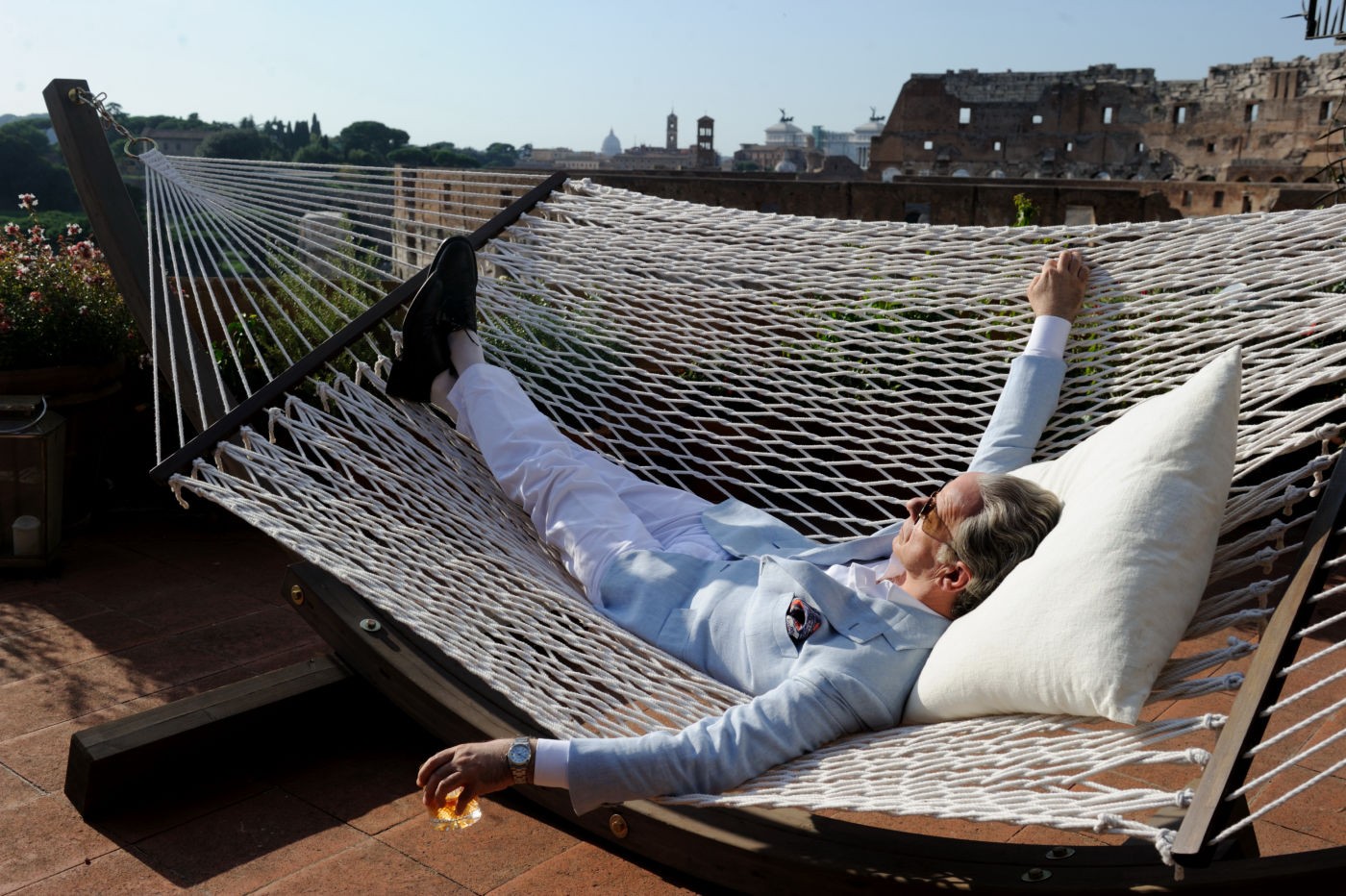Monday, February 10, 2014
Buona Fortuna
It's unlikely that any director would be audacious enough to attempt an outright remake of a Fellini film, but if there was ever a spiritual successor to the great Italian director's masterpiece, La Dolce Vita, it would be Paolo Sorrentino's The Great Beauty (La Grande Bellezza).
This is a film that's not easily described in terms of story and plot. In fact, in that regard it might be a disappointment to some, as evidenced by a few walkouts during the screening I attended. The film is more of a meditation on existential topics such as aging, love, art and the main character's relationship with Rome, the Eternal City.
The film swirls around its star Jep Gambardella (Toni Servillo), a weary writer and socialite much like Marcello Mastroianni's iconic Marcello Rubini character in La Dolce. Gambardella, like Rubini, floats around parties looking for amusement among the city' wealthy eccentrics. He wrote an important book - The Human Apparatus, nearly 40 years ago - that is still a topic of discussion. When asked why he never followed it up, he blames a preoccupation with Rome's nightlife.
Sorrentino gives us good reason to believe him. The party scenes are throbbing exhibitions of hedonism and abandon that include knife throwers, child painters, dwarves and a beautiful blonde heiress who takes Gambardella home only to find him gone after leaving the bedroom momentarily to fetch some nude photographs. "I could no longer afford to spend time doing things I did not enjoy," his voice-over tells us. It becomes clear where Gambardella's time has gone.
But Gambardella's existential crisis is triggered by news of an old girlfriend's death and soon the writer is smoking cigarettes and walking the Roman streets taking stock of what it's all added up to. A brief romance with a middle-aged stripper quickly unravels, his indifferent journalism career is without passion, and suddenly he is plagued by memories of that girlfriend from his youth. She rejected him. Yet, according to the girl's husband, never stopped loving Jeb. Nothing will haunt a man like the one who got away.
A recommendation for watching the Great Beauty - or any Fellini film for that matter - is to give yourself over to the experience instead of expecting something from it. I won't pretend the film didn't go on about 20 minutes more than I needed, especially the scenes involving the nearly-dead nun that felt superfluous to the film's melancholy tone. We get it, he's facing questions about mortality. But even when the "plot" is going nowhere you can bask in the cinematography of sun-drenched Rome.
Ironically, it is the Eternal City that Jeb blames his inefficiencies on. Instead of inspiring him to writing great works of art, it has captivated him to the point of inertia. "Rome makes you waste a lot time" he rues. It's a moment of self-condemnation, but I think I speak for many when I say that's the kind of problem you wouldn't mind having.
Servillo has delivered a fine acting performance; equal to Mastroianni's turn in La Dolce. You never grow tired of watching him saunter through the city in his cream-coloured Italian suits and slicked-back hair. The film is nominated in this year's Oscar foreign language category and to that I say "buona fortuna!"
Subscribe to:
Post Comments (Atom)


No comments:
Post a Comment